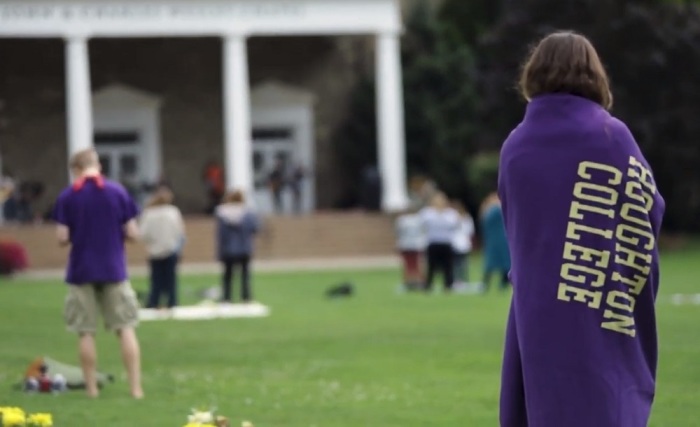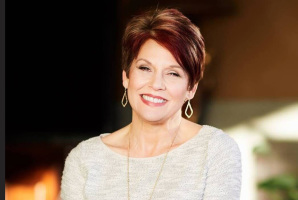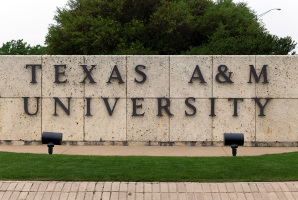Christian college to slash tuition to lowest in 20 years to reduce students’ financial burdens

At a time when high college sticker prices might be keeping potential students away, a Christian college in western New York is cutting its tuition costs to the lowest it’s been in 20 years.
Houghton College, a Christian liberal arts school founded over 137 years ago by a dedicated Christian farmer and located about an hour-and-a-half drive from Rochester, announced this week that it will reset tuition for the 2021-2022 school year to make pricing more transparent, affordable and straightforward.
Starting next fall, the school’s tuition rate will be $15,900 before financial aid awards. According to the school, the new pricing model represents a 53% decrease in published tuition costs for students enrolled in the on-campus residential undergraduate program compared to the current academic year.
In a statement, the institution stressed that the move demonstrates “that a high-quality, Christian education is a real possibility for students from all backgrounds and circumstances.” It also said its new tuition model is straight forward and offers “clear information about what their college education is going to cost.”
“This price reset makes Houghton College the best-priced Christian college in the nation,” the college’s statement explained, citing the most recent tuition survey done by the Council of Christian Colleges and Universities, to which the school is a member.
“In addition, Houghton is offering one of the lowest tuition rates of any college in the Western New York region.”
Houghton College President Shirley Mullen, who also chairs CCCU’s board of directors, said the move makes a Houghton education “truly a possibility for today’s learners who would not otherwise have considered the opportunity.”
“In this moment, we are taking a very deliberate step to make our pricing more transparent,” Mullen, a former history professor, explained. “We are also making certain that, in the process, a Houghton education will actually be more affordable, not simply appear to be more affordable.”
She said the decision allows the school to “reclaim” the “original mission of our college to provide a high-quality, deeply-Christian education for students who are not being served as readily by other institutions of higher education.”
“[Willard J. Houghton] founded this institution that we now know as Houghton College with the idea of reaching the young people who were not already being reached,” she said in a video announcement. “He had a vision of the fact that education was a key part of enabling young men and women to develop their God-given potential and to make a difference in the world.”
Houghton is ranked as a top-10 performing college in the nation by U.S. News & World Report for “social mobility,” which is defined as colleges that graduate large proportions of disadvantaged students awarded with Pell Grants.
The majority of Pell Grant recipients are students who come from families with adjusted gross family incomes under $50,000.
Houghton’s tuition and fees for the current academic year are listed at $34,466 with the additional cost of room and board listed at $9,856 by U.S. News & World Report.
However, the average net cost of the university after need-based aid and scholarship funds are discounted is about $27,520. But for families with incomes between $30,001 and $48,000, the average annual cost for students at Houghton is around $17,749 for the 2020-2021 school year.
According to a fact sheet, the new tuition rate itself will be $15,900, while room and board will still cost about $9,856 for the 2021-2022 school year. Additionally, students will have to pay $546 in fees for a total cost for the year of about $26,302.
According to a CCCU report, the mean tuition costs for the 2017-2018 school year were $34,740 for private four-year schools, $27,466 for CCCU schools, and $ 9,970 for public four-year schools.
In its statement, the college noted that a lower tuition rate means that federal and state financial aid will cover a greater percentage of the student’s annual bill and will enable students to incur less student loan debt and fewer out-of-pocket expenses.
Any annual percentage tuition increases will be based on the reset rate, the college vowed in the statement.
“The stories of students struggling with the new economic realities of COVID-19 hastened the college’s efforts to help alleviate some of their burdens,” Jason Towers, Houghton’s chief officer of enrollment and marketing, said.
“At the same time, Houghton will reinforce our historical mission to train and equip underserved students through an excellent Christian college education so that they can impact the world for Christ.”
Through the generosity of its alumni and supporters, over $41 million has been raised for student scholarships, enabling Houghton College to make more scholarship funds available to students in need.
In the fall of 2019, the college had a total enrollment of 969 students, according to the National Center for Education Statistics.
Across the nation, Christian colleges are making changes amid a decline in enrollment for evangelical institutions. Over 62 institutions that participated in the 2019 Annual Financial Aid Survey of CCCU Institutions, more than half of those surveyed, reported a decline in traditional undergraduate enrollment.
Over half of enrollment at surveyed institutions now consists of undergraduate degree completion and graduate programs, including some seminaries. The survey also found that the median unfunded discount rate at the surveyed CCCU institutions increased over the last decade from 29.6% in 2007-2008 to 43.3% in 2017-2018.
As CCCU communications specialist Morgan Feddes Satre stated last year, the increasing unfunded discount rate is “not a good sign in light of growing operational expenses” but is a trend “reflective of higher education broadly.”
Follow Samuel Smith on Twitter: @IamSamSmith
or Facebook: SamuelSmithCP





























